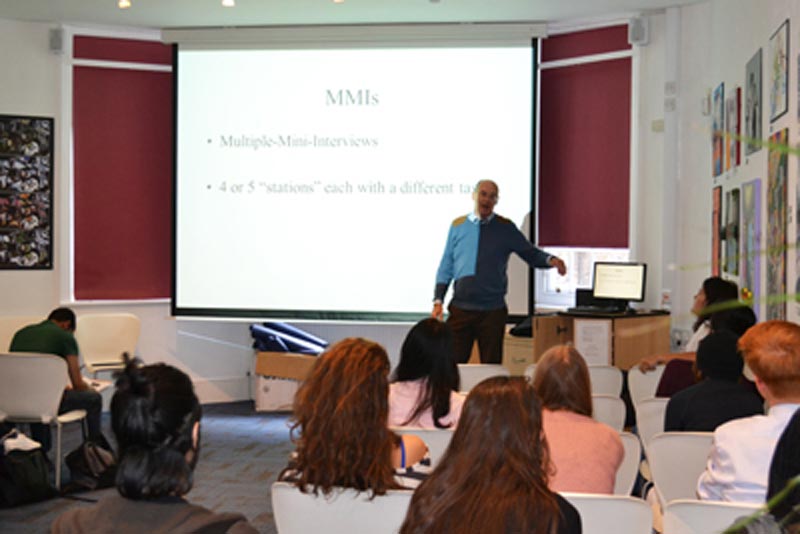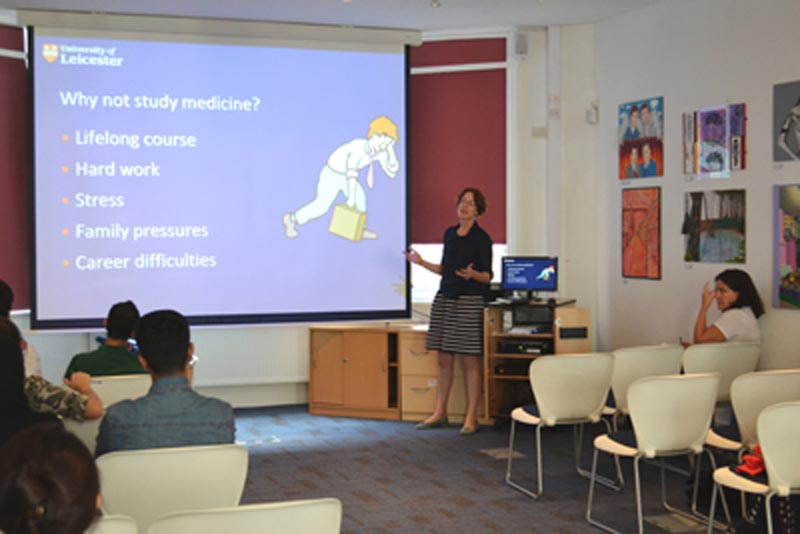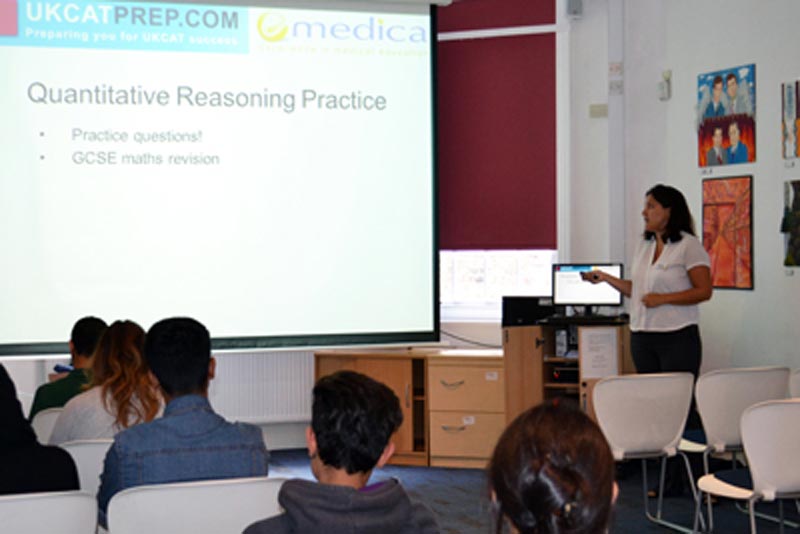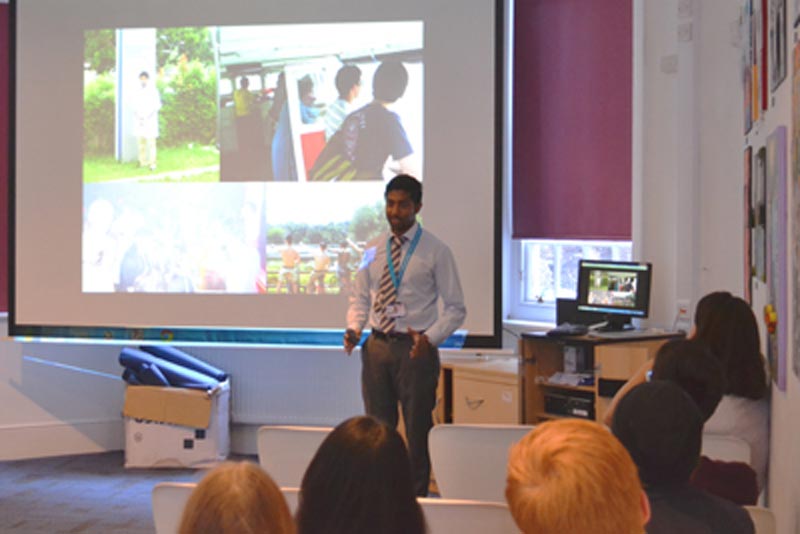Getting into Medicine Conference
2nd October 14

On 24th September DLD College London hosted a half day Getting Into Medicine Conference for students who are interested in applying to study Medicine at University. A good number of DLD students attended, along with students invited from other London schools.
Applying to study medicine is challenging; and competition for interviews and places on courses is very fierce. This day was set up to give students some insight into the different aspects of the process and the preparation they need to start in their AS year.
We were fortunate to have 4 excellent speakers, each an expert in their field.
• Anna Greathead, www.ukcatprep.com Project Lead; delivered a practical session on how to approach the UKCA
• Peter Haughton, Senior Adviser in Medical Ethics and Law and member of the medical admissions team, Kings College London; led an interactive discussion about personal statements, interview tips and ethics
• Dr Suzanne Dawson, Admissions Tutor, University of Leicester Medical School; asked important questions. What differences are there between various medical schools and courses? What type of doctors will we need in the future? What is the purpose of work experience and what kind should you look for?
• Dr Deeban Ratneswaran, Junior doctor, clinical lecturer and research fellow, St George’s Hospital, and Guy’s and St Thomas’ NHS Foundation Trust; narrated a journey through medical school and the life of a junior doctor, asking, is it for you?
Each talk was brilliant and we are very grateful to the speakers for their time, advice and insight. Thank you!
Delegate feedback was very positive, but what was it like to attend?
The ‘Getting into Medicine’ conference was mainly focusing on personal statements, interview tips, work experience and admission tests, but it offered a lot more than that. We got insight into how junior doctors work and how to go about doing what you need to do, now. This gave me confidence as I begin to prepare for a university application that is both complicated and extremely competitive. I would actually have to think about what the best part was because quite simply, it was both fantastic and fascinating.
One thing I did not expect to see is the huge workload, once you are in university and a junior doctor. The various trials and tribulations from Dr Deeban Ratneswaran gripped me and made me question whether life as a junior doctor is for me. A doctor has to work very hard, but I was more than motivated by the opportunity to do good. And I realised, I want that: I want to be that. I want to be not only an amazing doctor, but an amazing person like him.
Aaron Mir






